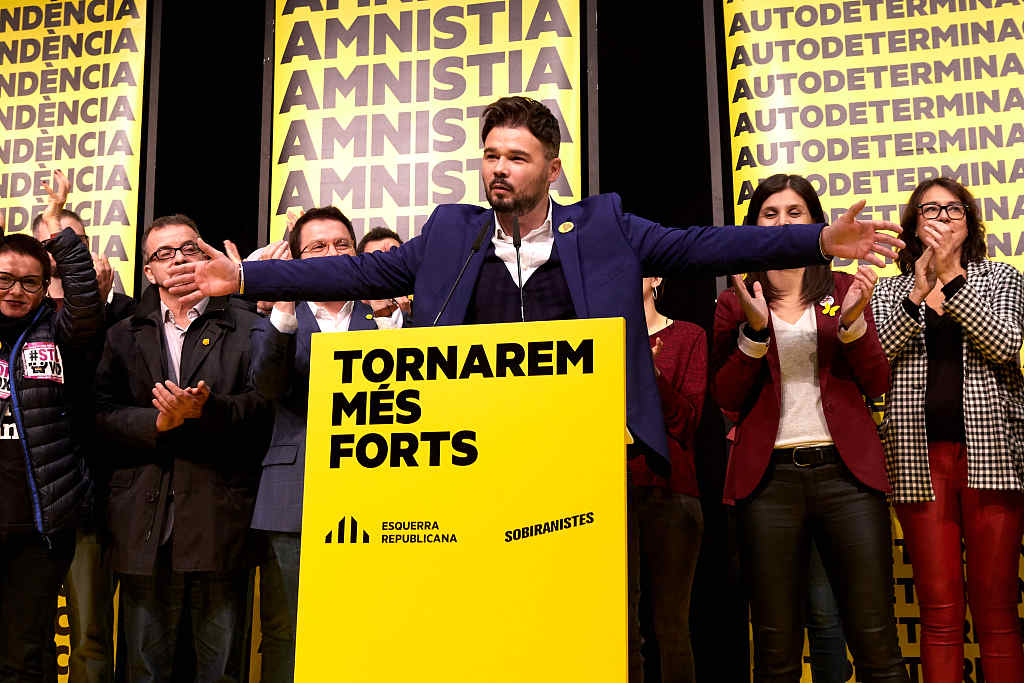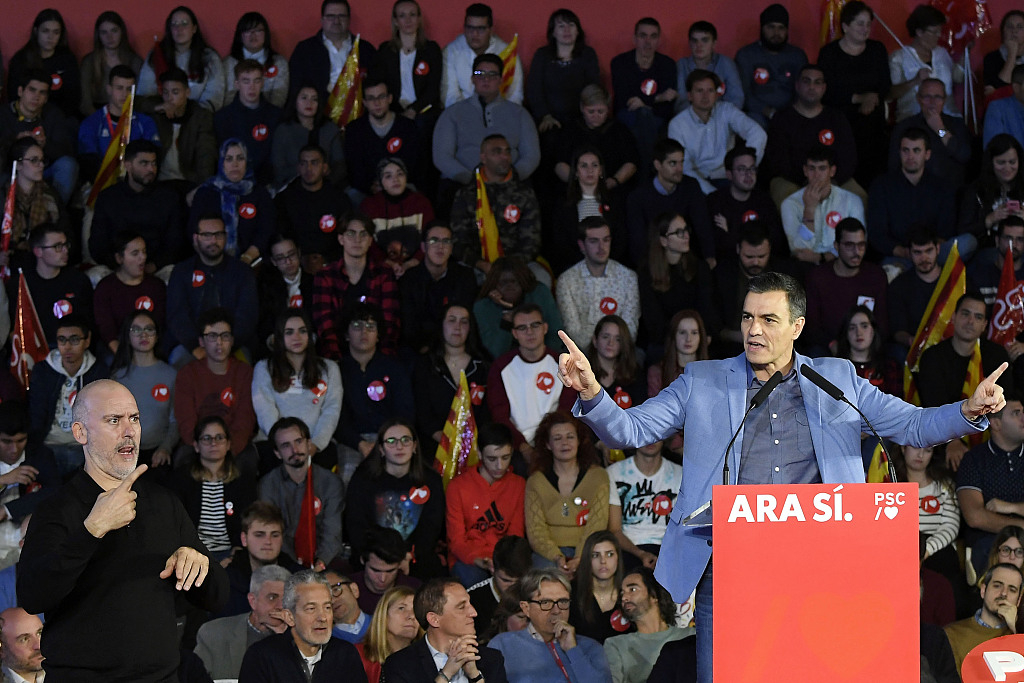Members of Catalan separatist party Esquerra Republicana de Catalunya (ERC) on Monday overwhelmingly backed the conditions set out by party leaders to support a Socialist-led government in Spain, demanding a negotiation over the issue of secession.
Read more:
Spain's elections: What you need to know
The November 10 election – the country's fourth in four years – left Spain's parliament even more divided than a previous ballot in April.
The ERC is Catalonia's oldest separatist party, whose chairman and former deputy leader of the Catalan government Oriol Junqueras was sentenced to 13 years in jail over the region's failed independence bid in 2017.

ERC candidate to the Spanish Parliament Gabriel Rufian delivers a speech after knowing their results in Barcelona, Spain, November 10, 2019. /VCG Photo
ERC candidate to the Spanish Parliament Gabriel Rufian delivers a speech after knowing their results in Barcelona, Spain, November 10, 2019. /VCG Photo
The result of the non-binding consultation could ease the way for left-leaning ERC to act as a potential kingmaker yielded a deeply fragmented political landscape. A total of 94.6 percent of members voted yes. The turnout was around 70 percent with close to 6,000 votes.
Spain's Socialists, led by acting Prime Minister Pedro Sanchez, have been left scrambling for support following an election win in which they fell short of a majority.
ERC official Marta Vilalta said the results showed that, unless the Socialists accept its demands, the party will uphold its refusal to facilitate Sanchez's bid to form a government.
"If (the Socialists) want something from us they have to make a move, if they don't we will obviously maintain our no (vote)," Vilalta told reporters.
The party's goal is to meet with the Socialists this week, an ERC source said.
In a convoluted question, ERC had asked its members whether they "agree to reject Pedro Sanchez's investiture unless there is previously an agreement to tackle the political conflict with the (Spanish) state through a negotiation table."

Spanish incumbent prime minister and Socialist Party (PSOE) candidate for re-election, Pedro Sanchez (R), delivers a speech during their last campaign rally in Barcelona, November 8, 2019. /VCG Photo
Spanish incumbent prime minister and Socialist Party (PSOE) candidate for re-election, Pedro Sanchez (R), delivers a speech during their last campaign rally in Barcelona, November 8, 2019. /VCG Photo
Spain's fractured politics have given Catalan parties a chance to regain the leverage of past decades that they at times had in the Spanish parliament, while potentially also offering a path to addressing the push for secession in the country's most economically important region.
The Socialists, who oppose both independence and the push to hold a referendum on secession, announced on November 12 a coalition deal with far-left Unidas Podemos, which favors a referendum and dialogue with Catalonia. Together the two parties have 155 seats, still short of a majority in the 350-seat parliament.
Read more:
Spanish Socialists make preliminary coalition with Podemos, leaving them short of a majority
ERC, which won 13 seats, has tied its support for a Socialist-led government to four conditions: talks should be between the Spanish and Catalan governments, take place without any preconditions, follow a clear timeline and include guarantees that any commitments made will be carried out.
Sanchez favored talks with the Catalan separatist government at the beginning of his term, but the talks collapsed in February.
(With input from Reuters)